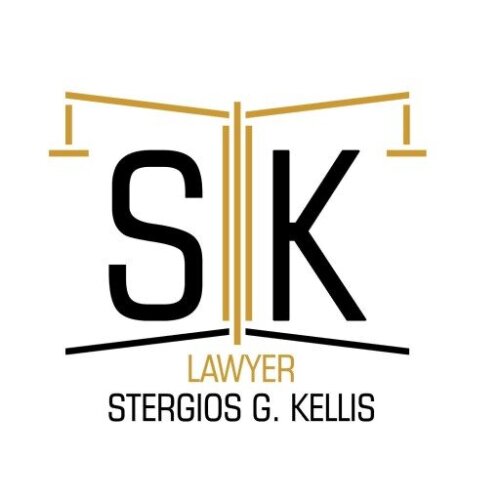Best Foreclosure Lawyers in Xanthi
Share your needs with us, get contacted by law firms.
Free. Takes 2 min.
Free Guide to Hiring a Real Estate Lawyer
List of the best lawyers in Xanthi, Greece
About Foreclosure Law in Xanthi, Greece
Foreclosure in Xanthi follows the same national legal framework that applies throughout Greece. When a borrower stops paying a secured loan - most commonly a mortgage on real estate - the lender can start enforcement proceedings to recover the debt. Enforcement typically moves from a court order or enforcement title to seizure and public auction of the debtor's property. In recent years auctions are often held electronically under the supervisory framework of the Ministry of Justice. Local courts and court-appointed enforcement agents carry out the procedure in Xanthi, and local courts hear any objections, appeals or requests for interim measures.
Why You May Need a Lawyer
Foreclosure involves strict procedural rules, short deadlines and potential loss of real estate. A lawyer helps you in many common situations:
- To assess whether the lender has a valid enforcement title and whether formal requirements were followed.
- To file objections or appeals against enforcement acts or auction notices within the legally required timeframes.
- To request temporary measures that can delay or suspend an auction while a dispute is decided.
- To negotiate with the lender for loan restructuring, repayment plans, or voluntary sale to avoid auction.
- To advise on available debtor-protection schemes, insolvency procedures or write-off options if you are over-indebted.
- To represent you at an auction or to challenge the valuation and conditions of sale.
- To review the chain of title, priority of mortgages and other encumbrances that affect your rights and liabilities.
Local Laws Overview
Key legal aspects relevant for foreclosure in Xanthi include:
- Enforcement procedure - A creditor normally must have an enforceable title. Once enforcement is initiated, bailiffs can seize assets and arrange public auctions of immovable property to satisfy creditors.
- Mortgages and pledges - Mortgages are registered and give the mortgagee a secured claim against real estate. Priority among creditors depends on registration date and type of security.
- Electronic auctions - Auctions are increasingly public and electronic. Notices must be published and interested parties may participate remotely when permitted.
- Debtor protections - Greek law provides some protections for debtors, including procedural remedies to challenge enforcement and specific frameworks for over-indebtedness or consumer hardship. Certain exemptions exist for minimal household assets and in some cases partial protection for a primary residence - applicability depends on current legislation and case facts.
- Time limits and procedural formality - Deadlines to object, to appeal and to apply for interim relief are short. Mistakes in procedure or failure to act quickly can remove legal remedies.
- Fees, costs and tax consequences - Foreclosure and auction processes generate court fees, enforcement costs and may trigger tax liabilities on transfer of property. These costs can change the amount ultimately payable.
Because Greece updates enforcement and consumer protection rules from time to time, you should consult a local lawyer to confirm how current national and regional rules apply in Xanthi.
Frequently Asked Questions
How does a foreclosure start in Greece?
A foreclosure usually starts when a creditor who holds an enforceable claim issues an enforcement request or request for payment. If the debtor does not comply, the creditor may move to seize assets and request a public auction. The exact first step depends on the claim type - for example a court judgment, a notarial deed or other enforceable instrument.
Can the bank immediately auction my home?
No. Banks must follow legal enforcement procedures. They first need an enforceable title and then must go through the seizure and auction process under court supervision. However, the process can progress relatively quickly if you do not take steps to object or negotiate.
What can I do to stop or delay an auction?
You can file an objection or appeal with the competent court, request interim measures to suspend enforcement, negotiate with the lender for forbearance or restructuring, or apply for debt-restructuring relief or insolvency remedies if you meet the relevant criteria. These options have strict timelines and legal requirements, so seek legal advice immediately.
Is my primary residence always protected from foreclosure?
Not always. There are statutory protections and specific relief mechanisms that may protect primary residences in certain circumstances, especially for vulnerable borrowers or under special debt-relief regimes. The availability and scope of protection depend on the type of loan, the debtor's circumstances and the rules in force at the time. A lawyer can assess whether protection applies to your case.
How long does the whole process usually take?
Timing varies widely. If a case is uncontested, enforcement and auction can take months. If you file objections, appeals or interim relief, the procedure can take significantly longer. Delays can also result from enforcement backlogs, valuation disputes or procedural appeals.
Can I negotiate with the bank instead of going to court?
Yes. Many lenders have internal workout or debt restructuring departments and may agree to repayment plans, loans rescheduling or voluntary sale arrangements. Negotiation is often the fastest and least costly option, but the lender is not obliged to accept terms unless provided for by law or contract.
What documents should I gather before seeing a lawyer?
Key documents include loan and mortgage contracts, any payment records and bank statements, correspondence with the lender, court or enforcement notices, title deeds, tax assessments, and proof of income and household composition. Copies of any legal decisions or enforcement orders are especially important.
Can foreigners be subject to foreclosure in Xanthi?
Yes. Non-resident owners and foreign citizens who hold property or have debts secured in Greece are subject to the same enforcement rules as residents. Cross-border issues can add complexity, so international creditors or debtors should get specialized advice.
What are the costs of hiring a lawyer and are there free services?
Costs depend on the complexity of the matter, the type of work and the lawyer's fee structure. Many lawyers offer an initial consultation for a fixed fee. Legal aid may be available for low-income individuals through state-supported schemes or local bar associations. Some non-profit organizations and church or municipal social services may also provide advice or referrals.
Can I buy my own property back after an auction?
It may be possible in limited circumstances to overturn an auction or redeem a property by paying the auction price and associated costs, depending on the stage of the procedure and applicable rules. Remedies and time windows are narrow, so prompt legal action is essential if you want to pursue this option.
Additional Resources
When you need guidance or official information in Xanthi, consider contacting these local and national bodies and services - they can provide administrative information, complaint channels or referrals to legal assistance:
- Court of First Instance in Xanthi - for case files, procedural dates and enforcement records.
- Xanthi Bar Association - for lists of local lawyers and legal aid information.
- Ministry of Justice departments that supervise enforcement and public auctions - for general rules on auctions and procedures.
- Hellenic Financial Ombudsman or banking ombudsman services - for complaints against banks or lenders.
- Citizen Service Centres - KEP - for document certification and administrative support.
- Local municipal social services and non-governmental organizations - for emergency housing help and social benefits advice.
- Consumer protection authorities - for information about consumer loans and rights.
Next Steps
If you are facing or risk foreclosure in Xanthi, take the following practical steps:
- Act quickly - deadlines are often short. Do not ignore court or bank notices.
- Gather documentation - collect loan contracts, notices, payment records, title deeds and personal financial documents.
- Contact a local lawyer experienced in foreclosure and enforcement law - ask about deadlines, likely remedies and an estimate of fees.
- Ask about legal aid or low-cost advice options if you have limited income.
- Communicate with your lender - request a meeting or written proposal for restructuring or repayment alternatives.
- Consider interim measures - your lawyer can advise about objections, appeals or emergency relief to delay an auction while you seek solutions.
- Prepare for all outcomes - plan for negotiation, voluntary sale, insolvency procedures or representation at auction as appropriate.
Facing foreclosure is stressful, but timely and informed legal action improves your chances of finding a workable solution. A local lawyer will best explain current law and options that apply specifically in Xanthi.
Lawzana helps you find the best lawyers and law firms in Xanthi through a curated and pre-screened list of qualified legal professionals. Our platform offers rankings and detailed profiles of attorneys and law firms, allowing you to compare based on practice areas, including Foreclosure, experience, and client feedback.
Each profile includes a description of the firm's areas of practice, client reviews, team members and partners, year of establishment, spoken languages, office locations, contact information, social media presence, and any published articles or resources. Most firms on our platform speak English and are experienced in both local and international legal matters.
Get a quote from top-rated law firms in Xanthi, Greece — quickly, securely, and without unnecessary hassle.
Disclaimer:
The information provided on this page is for general informational purposes only and does not constitute legal advice. While we strive to ensure the accuracy and relevance of the content, legal information may change over time, and interpretations of the law can vary. You should always consult with a qualified legal professional for advice specific to your situation.
We disclaim all liability for actions taken or not taken based on the content of this page. If you believe any information is incorrect or outdated, please contact us, and we will review and update it where appropriate.











